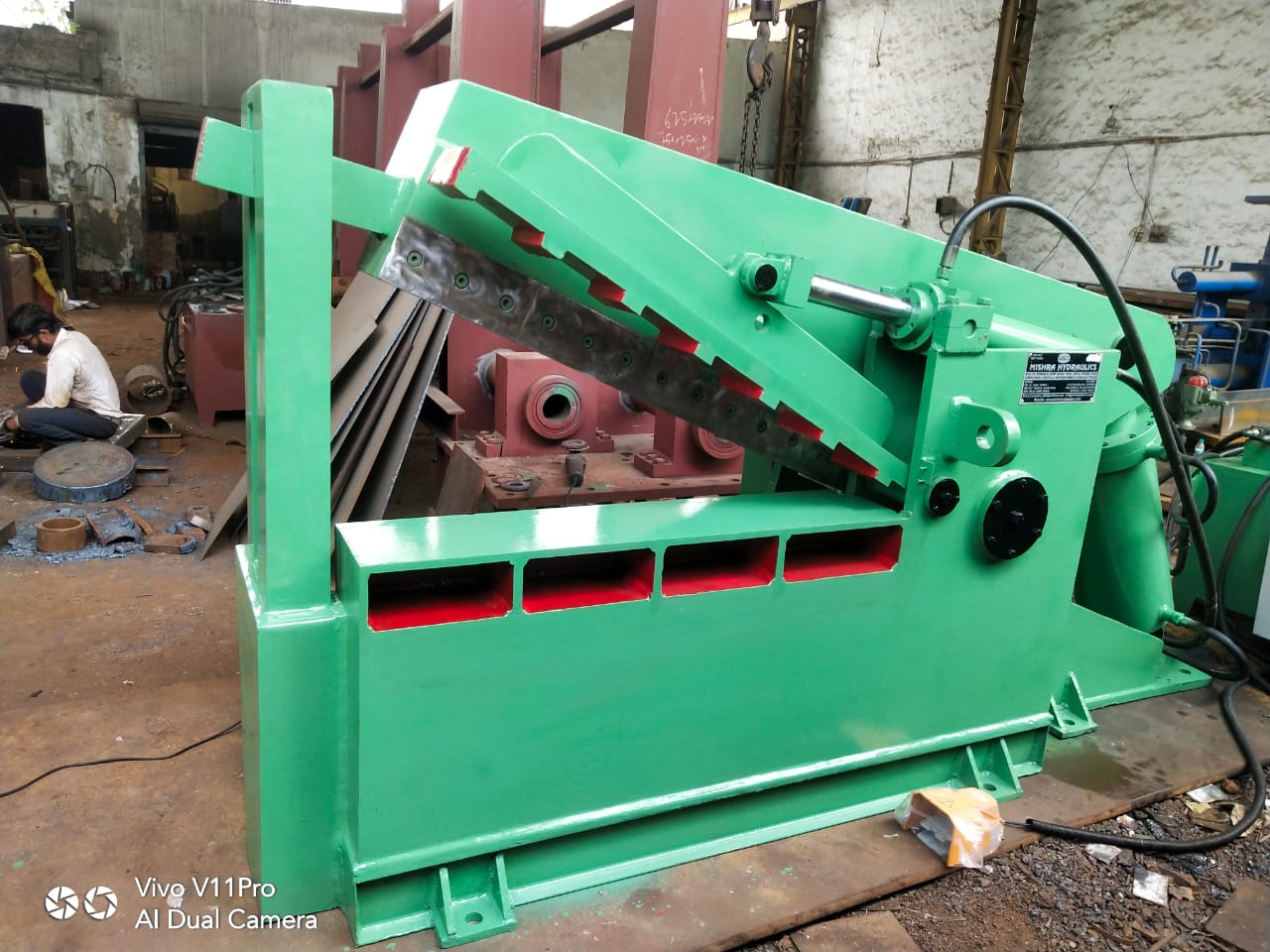 Hydraulic Alligator Shearing Machine
Hydraulic Alligator Shearing MachineAlso known as a crocodile shear, an alligator shear is a type of shearing machine that’s characterized by a hinged opening for the cutting tool. They are called “crocodile ” and “alligator” shears because their hinged opening resembles the mouth of these large reptilian animals.
The hinged opening of alligator shears consists of two straight parts: The top part features the actual blade, whereas the bottom part features a strong and supportive surface for the workpiece. The workpiece is placed directly on the bottom part. When the alligator shear is engaged, the bladed top will drop down onto and through the underlying workpiece.
Applications for Alligator Shears
Alligator shears are used in a wide range of cutting applications. While not ideal for large sheet metal, they are often used to cut smaller pieces of sheet metal. Other cutting applications in which alligator shears are frequently used include rebar, beams and piping.
Benefits of Alligator Shears
Because they are typically powered by a hydraulic cylinder, alligator shears are powerful and able to cut through otherwise hard materials. The use of a hydraulic cylinder essentially applies pressure that forces the alligator shear’s blade through the workpiece. Whether the workpiece is made of iron, steel, copper or other hard materials, it can probably be cut using this type of shearing machine.
Alligator shears also produce little or no waste. Like with all shearing processes, no chips are formed during this cutting process. Rather, they perform clean cuts that don’t produce chips. This makes alligator shears an efficient solution for cutting workpieces.
Although there are other processes available to cut through hard materials, many of them involve heat. Heat, of course, can change the physical properties of a workpiece. If a workpiece is exposed to heat, it may become weaker. Alligator shears don’t use heat, though, making them preferable among manufacturing companies.